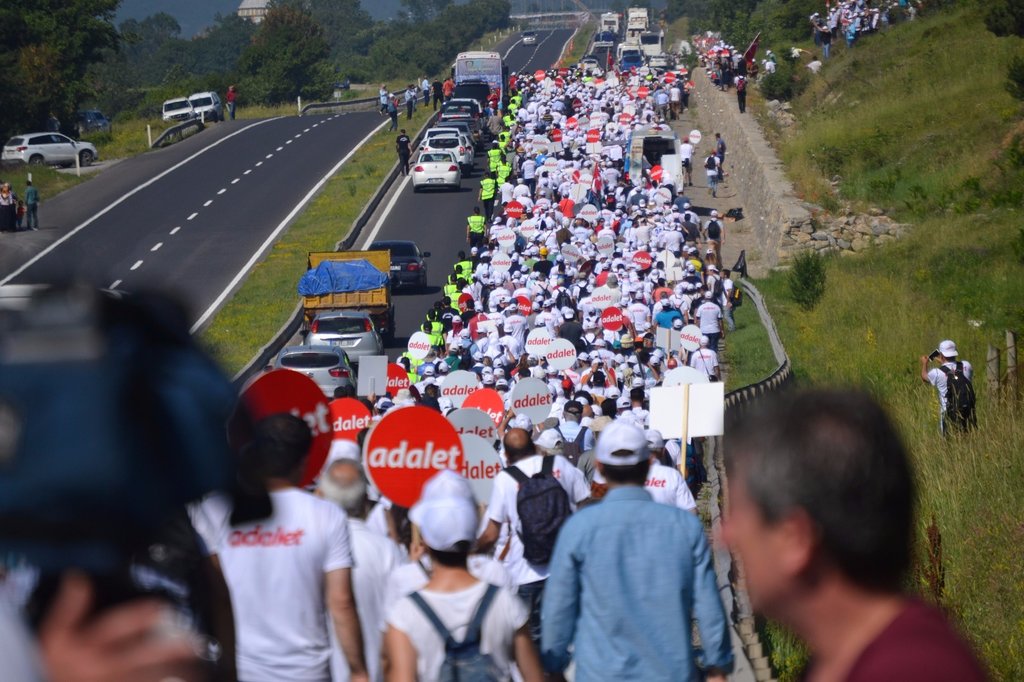Triggered in Ankara by the arrest of the main Turkish opposition deputy Berberoğlu, the march for Adalet (justice) is now heading towards Istanbul and growing each day.
On June 14, Kemal Kılıçdaroğlu, the leader of Turkey’s main opposition Republican People’s Party (CHP), announced that he and his supporters were to embark on a march from Ankara to Istanbul, a distance of 450 kilometres. What is now known as a “Justice March” has been organized to protest the arrest of a former journalist and CHP deputy Enis Berberoğlu, who was sentenced to 25 years in jail on spying charges.
Holding a single banner bearing the word adalet (justice), Kılıçdaroğlu said that Turkey was facing a dictatorial regime that puts parliamentarians, journalists and academics in prison. “We do not want to live in a country where there is no justice,” he added. The march is expected to last 24 days and will end at Maltepe Prison in Istanbul, where Berberoğlu is now being held.
Kılıçdaroğlu has often been criticized for his passivity and inability to exercise an influential opposition against the anti-democratic moves of the Erdogan government, especially after the controversial constitutional referendum of April 16, which turned the Turkish parliamentary democracy into an authoritarian presidential system. The referendum was won by a narrow margin and, due to the scandal of “unstamped ballots”, half of the population in the “No camp” has trouble believing in the veracity of the referendum results.
In fact, Turkey’s recent adventures with justice are not specifically related to the controversial referendum results. On July 20, 2017 it will be the first anniversary of the State of Emergency Rule that was declared following last year’s dramatic coup attempt on July 15. This past year under the State of Emergency Rule has been marked by injustices, human rights abuses and freedom violations on an unprecedented scale. According to official figures, nearly 50.000 people, thereof 15 members of parliament, have been arrested, at least 150.000 civil servants have been dismissed and more than 170 journalists are in prison.
Kılıçdaroğlu has been calling July 20 a “civilian coup” staged by the government with the declaration of the State of Emergency Rule.
“Justice March” marks the first instance in the history of the Republic, where the leader of the main opposition party embarks on a protest march of such a long distance. For many Turks, who believe that they were treated unjustly by the State of Emergency and who cannot take any legal action because of it, the adalet march has become an event of unique significance.
The pursuit of justice was able to unite larger segments of the society, which feel excluded and exposed to injustice both in front of the law even in their everyday life. Additionally, the Justice March seems to bring many opposition groups together, including the pro-Kurdish Peoples’ Democratic Party (HDP), other political parties, labour unions, bar associations along with the half of the Turkish population who voted “No” in the referendum.
CHP announced that it would no longer restrict its democratic struggle to the parliamentary opposition and is determined to have more presence in the streets. In this respect, the march may help consolidate the CHP’s role as the main opposition force against Erdogan’s tightening grip on Turkey.




